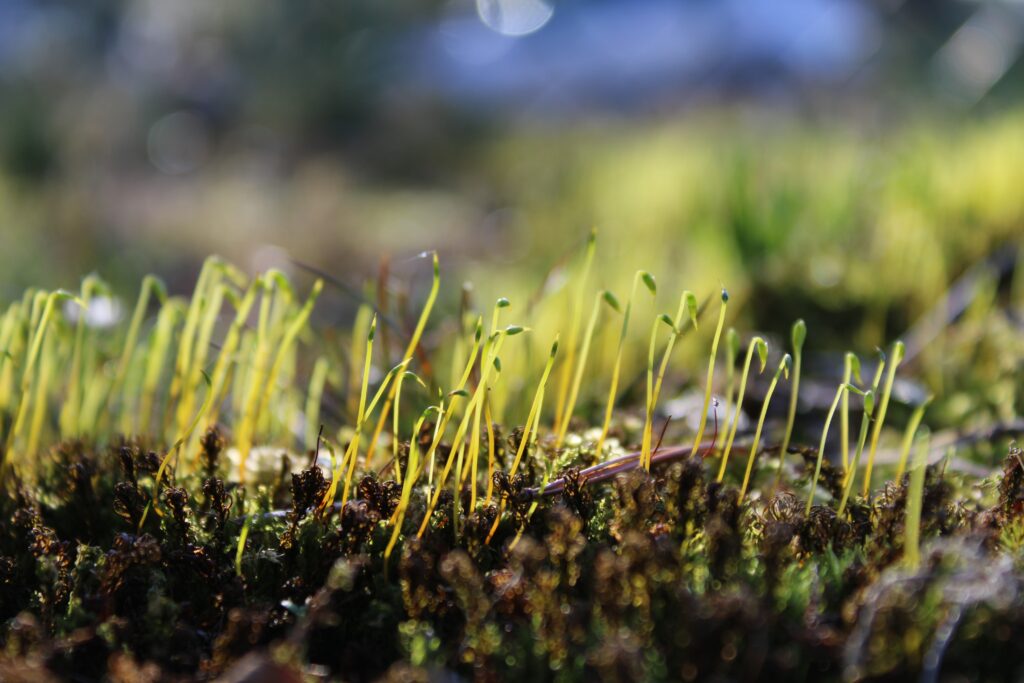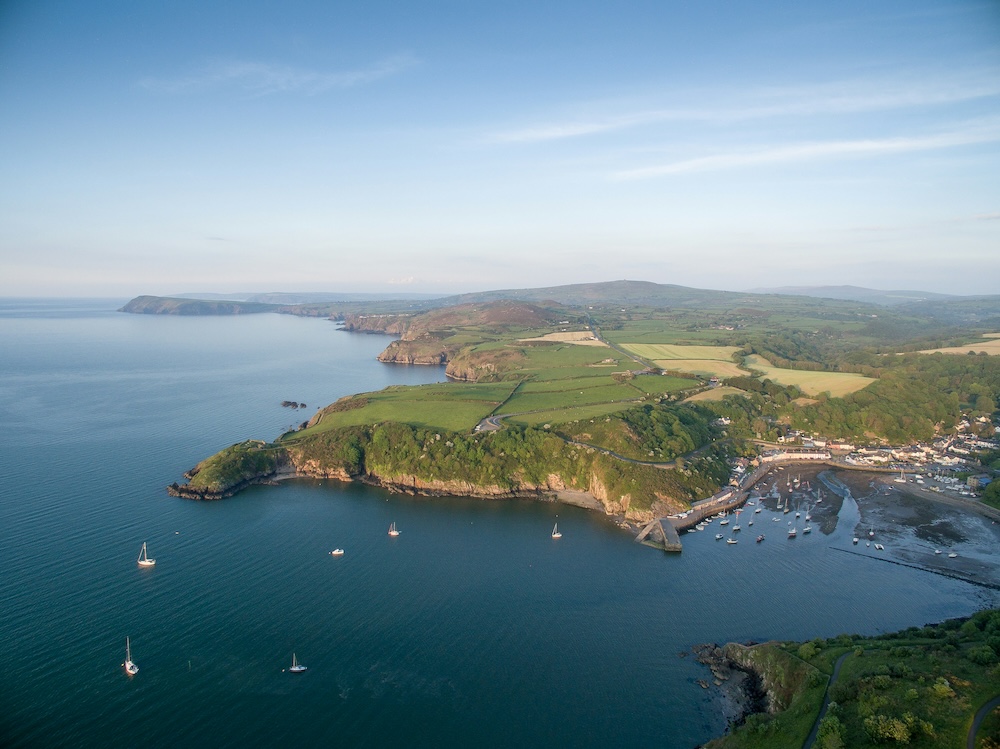Georgie Styles explores how embedding seed sovereignty through localised seed systems can help build a climate resilient food future.
As the intensity of our climate breakdown deepens, so do the threats to our global food systems.
The IPCC has stated that we have already surpassed our ability to adapt to certain climatic changes. However, how we choose to address climate issues over the next two decades will be vital. Whilst it’s already felt by many, greater food insecurity is set to wash up on UK shores and the Climate Change Committee has warned that greater price volatility will lead to more people being pushed below the poverty line.
Resilient agricultural systems will play a key role in mitigating the impacts of the climate crisis. However, the way in which we will build resilience and continue to feed ourselves amidst increasingly unpredictable weather extremes is up for debate.
Many food system experts believe that localised food systems have the greatest chance of providing resilience in the face of adversity. The argument is that shorter supply chains equal greater food security because they face less food system fragility and protect us from deadly disruptions to food supply and distribution networks. Localised food systems also provide opportunities in building community and wellbeing, boost local economies, restore local biodiversity and soil health, reduce emissions and redistribute power more evenly across food system actors.
Much of our public understanding on how we can support and build on localised food systems for resilient futures is based on the food itself. But there is an often overlooked and undervalued, yet undeniably integral part of our food systems we are all missing in our resilience debates – seeds.
Putting power in the hands of our farmers
‘Seed is really integral to what you do as a grower’ argues Kate McEvoy, co-founder of Real Seeds, an open-pollinated seed cooperative in Newport, Pembrokeshire. Kate believes that our focus on where our seed comes from should be just as important as where our food comes from.
Real Seeds produce over 400,000 packets of open-pollinated seed every year and work with a network of farmers and growers across Wales and the rest of the UK to produce, save and sell their own seeds via their catalogue, ‘both valuable heirlooms and really good modern strains’ explains Kate.
‘It’s just normal seed!’ explains Ben Gabel, co-founder of Real Seeds, when asked to explain open-pollinated seeds. ‘It’s what plants have been doing for 115 million years, and they have all evolved ways of coping with changing climate and weather and different diseases…the key thing is, is that there’s genetic variation’ he continues.
Seed sovereignty was a term coined in 1996 by La Via Campesina, a union representing over 200 million peasant farmers worldwide, to signify the right of farmers to save, use, exchange and sell their own seeds.
Dominant discourse around feeding a growing global population affected by climate breakdown focuses primarily on agri-techno-fixes which includes the scaled-up intensification of food supply using Genetically Modified (GM) seed, claiming they are resistant to certain climatic shocks such as droughts or floods.
But Ben, who studied genetic engineering, explains that hybrid and GM seeds have no genetic diversity: ‘each seed is the same’, he says. This means that while they may produce a higher yield in a particular season condition and be relatively resilient against a particularly dry or wet spell, solving short term issues, this seed will not adapt to an evolving environment, as it is manufactured in isolation from our soils and changing climates.
Issues such as seed patenting and intellectual property rights over GM seeds have caused devastating outcomes for farmers globally. Farmers are not able to save GM seed and therefore become reliant on buying in new seed each year, which is a financial burden that cripples many small-scale producers. Many GM seeds also require a higher level of inputs for higher yields adding additional costs. Hundreds of farmers have even been sued by multinational seed corporations such as Monsanto for allegedly breaching patent laws by replanting crops from GM seed, resulting in the further consolidation of the seed industry and less power in the hands of farmers who feed us.
Innovative. Informed. Independent.
Your support can help us make Wales better.
Seed sovereignty was a term coined in 1996 by La Via Campesina, a union representing over 200 million peasant farmers worldwide, to signify the right of farmers to save, use, exchange and sell their own seeds. Open pollinated seed, by its very nature, is open source, passed down from generation to generation, giving farmers complete autonomy over their seeds. These seeds are also adapted in our soils over time, making them the most likely to survive and provide resilience amidst uncertainties. Our seasons are no longer divided between dry or wet seasons, but operate according to an increasingly unpredictable mixture of intensified weather systems.
An increase in localised seed supply for food security across Wales
‘What happens when you can’t get seed?’ asks Kate McEvoy of Real Seeds. ‘If you don’t have seeds, you don’t have any vegetables, so it’s all about resilience in the face of external shock’, she says.
Kate’s concerns are shared by Ann Owen, seed producer for Real Seeds and Founder of Einion Gardens near Machynlleth in West Wales, ‘I keep banging on about food resilience, food security, I don’t want to have to rely on seed that has to travel a long way to get here, because then all kinds of things can go wrong’, she says.
Around 80% of the UK’s seed is imported, mostly from the EU. During Covid-19, UK seed companies were inundated with orders because long seed supply chains meant disrupted and diminished access to seed – so people started to look at what we had available here in the UK. This pushed our local seed producers to maximum capacity.
’My vision is to have many, many small [seed] producers because that is a more resilient system, you know, distributed supply is much more resilient, particularly in a time of climate change” says Ann..
Real Seeds and producers like Ann, operate alongside an increasing number of seed producers across the UK, such as Tamar Organics and Vital Seeds. The Gaia Foundation’s UK and Northern Ireland Seed Sovereignty Programme, works to support ‘small-scale commercial growers, community groups and home gardeners and allotmenteers with useful networks, resources and information to help protect and restore seed diversity across the UK and Ireland’. Since 2017, this work has seen an increase in regional seed growing networks and has supported the inception of many across Wales.
For example, Katie Hastings, the UK and Northern Ireland Seed Sovereignty Programme Coordinator for Wales, has been instrumental in starting Llafur Ni (Our Grains), a network of farmers and growers working together across Wales to increase grain diversity and revive lost varieties. She has also been heavily involved in the Wales Seed Hub, which ‘produces seed grown on Welsh farms using agroecological practices’ and the Welsh Grain Forum, a ‘community of growers, millers, bakers, maltsters, brewers, thatchers and friends committed to using and promoting Welsh grain’.
The Lampeter Seed Library and Incredible Edible Seed Library operating in South Wales complete the current scene of seed sovereignty across Wales.
This growing network of locally adapted seed producers in Wales works towards building a climate resilient future Seeds adapted in the UK, and particularly climates and soils in Wales, are most likely to be able to feed a Welsh population, but while they may be our most resilient seed option, these seeds are not immune to the effects of our intensified weather systems.
Climate change affects our current local seed systems
’We’re on the coast and the weather has become more severe, with more severe and longer spells’, says seventh-generation Pembrokeshire farmer and seed saver, Gerald Miles from Caerhys Organic Farm Gerald has been involved in a variety of Welsh and EU research trials for growing and bulking ancient varieties of oats, wheat and barley.
It has not been an easy ride. ‘Three years ago I lost twenty five acres of cereals’, Gerald explains, ‘it was so wet we couldn’t go into the field to harvest it, I didn’t have seed, I lost the lot and I had to buy seed for the next year. And this is here in Pembrokeshire… Climate change is here, now’ he states passionately.
Ann Owen has also faced challenges in climate conditions, ‘strange weather, unseasonal weather, prolonged droughts or prolonged rainfall’ she explains. These conditions have forced her to adapt her growing patterns, ‘everything I sow, I sow in batches, I double up’. Due to saving her own seed, she has enough to afford to sow large quantities over a period of time to mitigate against extreme weather that may affect a particular batch.
Innovations and adaptations in the way we produce our seed and food are becoming ever more essential in times of uncertainty, and inter-generational co-learning and community networks are vital elements of resilience thinking. If you have food, and if you have community, you are very, very strong’, says Ann.
Cherishing Welsh farming culture and history through heritage seeds
When considering climate solutions, it is important to not only consider resilience in relation to the weather, but the availability, adaptability and suitability of seed to farmers’ contexts, livelihoods and bio-cultural knowledge, as well as accessibility to culturally appropriate foods.
Heritage seeds are an imprint of our history and, like many countries, Wales has a long agricultural history and farming culture which is important to protect in times of change.
‘They’re things that should be cherished, ancient grains…these seeds are special’ says farmer, Gerald Miles, as he brushes his hands across the tops of his ancient grains. Gerald is also a part of Llafur Ni. This group has gone on a journey to not only revive seed that would otherwise be lost, but also the mechanistic means to process this seed for human consumption. ‘These are exciting times for the revival of rare welsh grains and oats. There’s renewed interest, rare varieties being refound and replanted, and a next generation determined to learn from elders and restore lost heritage to the landscape’ says Katie.
Seed Sovereignty for human health
The argument for localised seed systems, goes beyond mitigation against the deepening effects of our climate crisis and sustaining ecosystem integrity and farming culture. As fears grow around the impact of GM seeds on our health, the increasing number of open pollinated, locally adapted, organic seed businesses and seed saving networks across the UK, consider attributes of seed that are relevant to the wider food system, such as their contributions to human nutrition.
‘Ancient grains are very important to our health’ says Gerald Miles. He goes on to explain that GM seeds are by and large unregulated and, because they are still in their infancy, have not gone through satisfactory food safety trials to highlight their true impact on human health.
In 2021, the UK government’s Consultation on the Regulation of Genetic Technologies offered little in the way of regulations for ensuring the protection of public health in relation to the consumption of GM seed.
A food system based on localised seed systems calls for a shift in view toward seeing both seed and climate change as interconnected elements in complex systems, and presents huge opportunities for the Welsh government to gear support toward truly climate resilient food solutions.
‘Once you’ve lost [seeds], you lose them forever, and you will need them’ says Gerald Miles. ‘It’s time that we woke up and looked around us and appreciate what’s underneath our feet, and respect a seed for the actual beauty and power that it is”’
As the need to respond to the climate crisis becomes ever more urgent, finding solutions to continue to feed ourselves is arguably, the world’s most pressing issue. An increase in farmer-led, localised networks of seed saving, production and distribution is therefore essential to building a climate resilient food future and it is vital that we offer these networks both public and political support.
All articles published on the welsh agenda are subject to IWA’s disclaimer. If you want to support our work tackling Wales’ key challenges, consider becoming a member.
This article was commissioned by Gwenno Robinson thanks to the Books Council of Wales’ New Audiences Fund.





